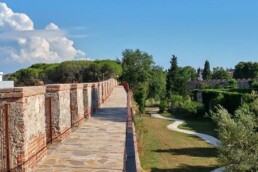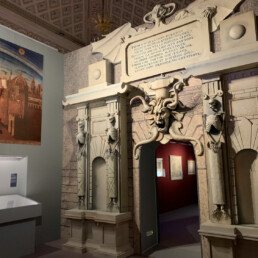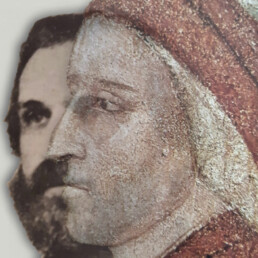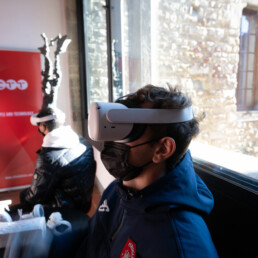Pisa celebrates Dante by naming three public spaces after a number of characters from the Divine Comedy
Pier Delle Vigne, Frederick II of Swabia, Arrigo VII: three figures linked to the history of the city

Three figures linked to the history of the city are three men mentioned by Dante in the Divine Comedy, thus making them immortal. To celebrate the 700th anniversary of the poet’s death, the city council of Pisa has decided to dedicate three public spaces along the city walls to Pier Delle Vigne, Frederick II of Swabia and Arrigo VII, characters of great depth to whom Dante attributed different destinies in his work. The decision was taken as part of a larger operation in which the Municipality has named thirteen public areas after different personalities from all eras.
The spaces dedicated to Dante’s characters are located along the walls in via Contessa Matilde. A garden has been dedicated to Arrigo VII and Frederick II of Swabia while a square has been dedicated to Pier delle Vigne.
Discovering three Dante characters
Frederick Second of Swabia, the Holy Roman Emperor, great patron, and advocate of scientific progress is very tied to the history of Pisa. In 1223, Emperor Frederick II attended a unique tournament among the most distinguished mathematicians of the time, the winner of which was Leonardo Pisano, known as Fibonacci. Near the park that is named after the Emperor, there is an inscription that is very difficult to read, engraved on the architrave of the so-called door of Santo Stefano. According to the archaeologist Federico Andreazzoli, given that it’s dated 1240, it would have been created at the time of the completion of the city walls, carried out in those years. For Federico II, Pisa had a strategic role in the Tyrrhenian arena. Dante, however, places him in Hell, in Canto X.
Emperor Arrigo VII is buried in Pisa in a monumental tomb inside the Cathedral. Arrigo VII’s dream was to be able to unify Italy under the leadership of the Holy Roman Empire, but it was not successful. That was also Dante’s dream, who for this reason assigns the Emperor a seat in Paradise and mentions him several times with words of admiration.
Pier delle Vigne was a jurist, a politician, a man of letters, and considered one of the greatest exponents of medieval Latin prose. He was imprisoned in Pisa and after his death he was buried in the Chinzica neighborhood. Pier delle Vigne mentioned in the Divine Comedy, in the thirteenth canto of Inferno.




